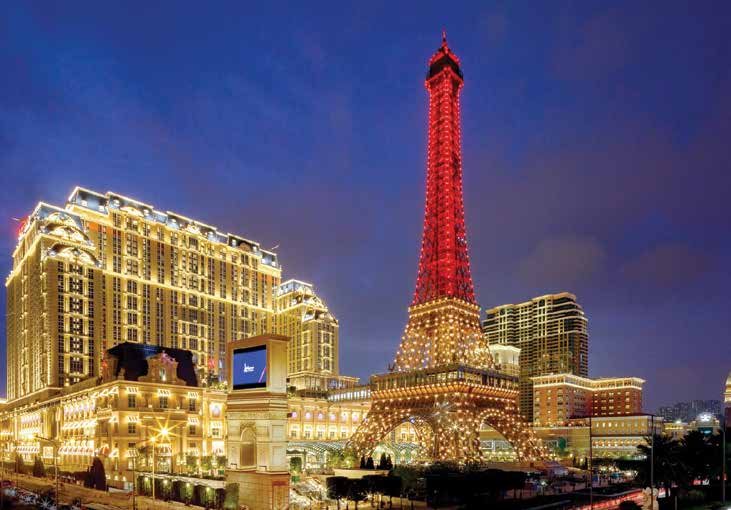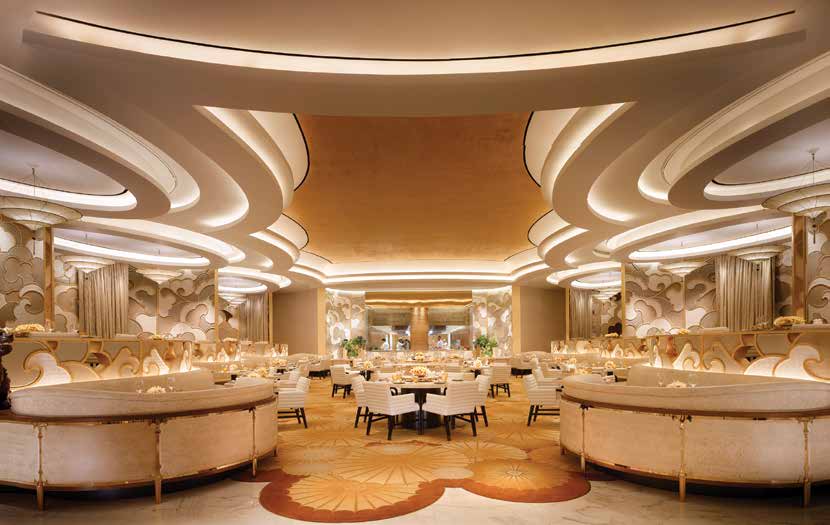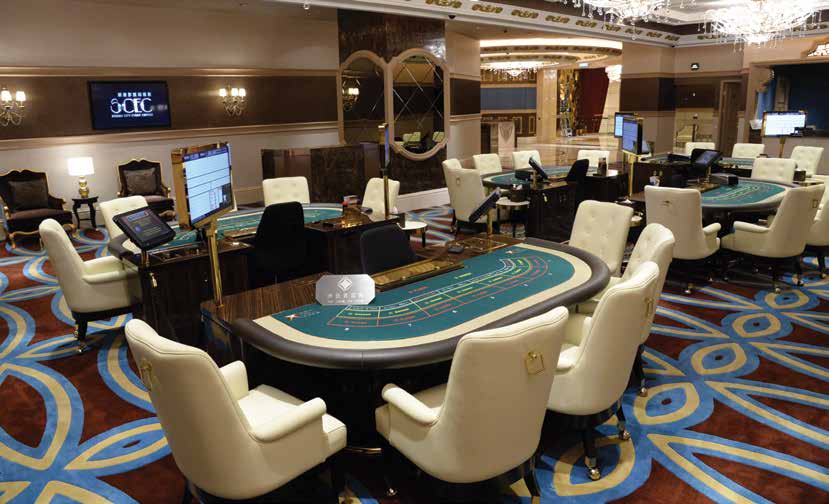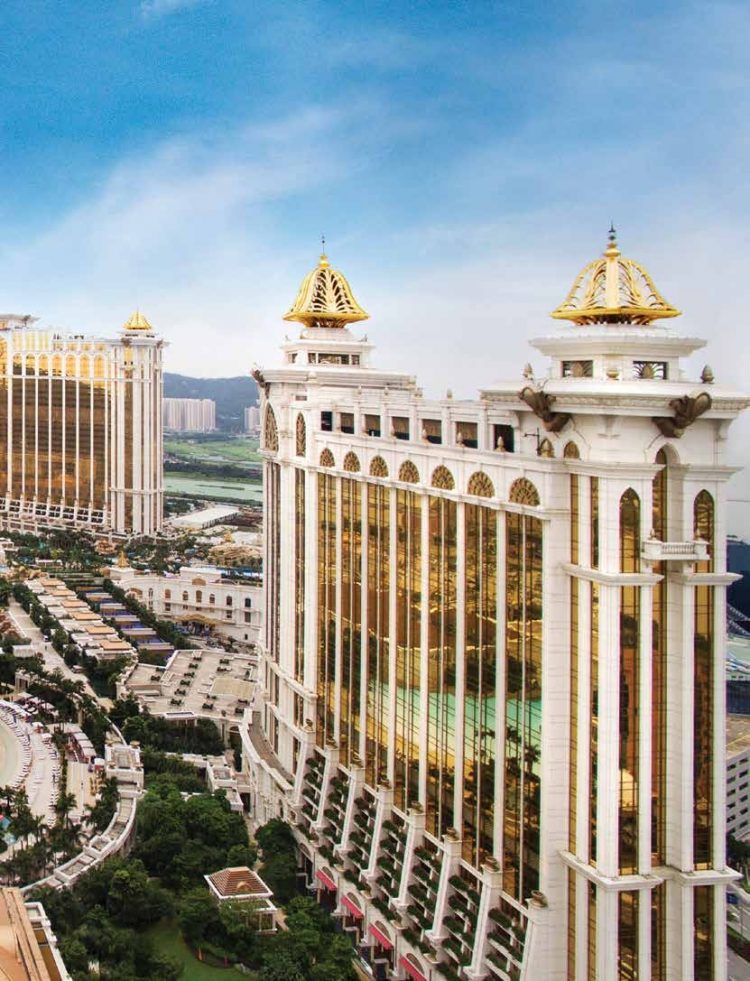Now in its second year, the global casino capital’s comeback speeds ahead along unexpected tracks.
By Muhammad Cohen | Editor at large
Macau’s recovery keeps producing surprising numbers and serious questions. Gaming revenue powered ahead 19% though the first seven months of 2017, with both the mass market and VIP segments delivering double digit growth. Lucrative overnight visitors increased 10% in the year’s first half, filling new hotel rooms and seemingly fulfilling political and economic imperatives to shift Macau’s profile toward tourism and leisure.
Yet investor enthusiasm remains tepid, with industry sentiment more cautious than triumphant. Renewed growth followed a 26-month slump from mid-2014 that shaved US$16 billion off Macau’s annual gross gaming revenue and cost operators US$6 billion in EBITDA. Rescaling those heights remains a distant dream. Meanwhile, with US$13 billion worth of integrated resorts opened since mid-2015 barely producing double digit returns, some Macau watchers wonder whether to call it a recovery at all.
Sands Macao opened in May 2004 and recouped its US$265 million initial cost in nine months. For projects that followed, gaming’s standard 20% return on invested capital (ROIC) proved a modest hurdle. The first 10 large Macau casino projects after liberalization averaged 30% annual returns, according to HSBC research. But the latest Cotai projects are barely averaging 10% ROIC.
“The recent respective performance of Wynn Palace and Parisian Macao illustrates over-scaled developments generating cash flows that are not consistent with investor expectations,” David Bonnet of gaming and property advisor Delta State Holdings says. With China’s outbound tourist count forecast to increase by two-thirds to 200 million by 2020, Macau’s relative under-penetration of mainland provinces beyond neighboring Guangdong, favorable market reaction to lavish US$4.2 billion Wynn Palace and government insistence on non-gaming attractions, the fact is that smaller, cheaper projects aren’t an option.
ROI looms larger as gaming concession expirations approach: MGM China is expected to open its US$3.3 billion Cotai resort later this year, less than two-and-a-half years before its sub-concession runs out. “
It’s a risk that needs to be factored into valuation models,” Mr Bonnet cautions investors. “These are not US Treasury bonds, or even Apple bonds.”

HOLY GRAIL MIRAGE
There are other challenges using ROIC as a metric for Macau.
“The 20% ROIC has been the holy grail in casino gambling since the opening of the Mirage [in November 1989] and, in the past, before the proliferation of casinos throughout the world and the ever escalating cost of building modern integrated resorts, it was actually achievable,” Global Market Advisors Senior Partner Andrew Klebanow says. “The problem is that casinos today are really expensive to build; they require a wealth of non-gaming amenities; they require upwards of 2,000 slot machines that cost US$25,000 a piece; they need advanced technologies in surveillance, security and information systems; and they have to provide environments that stimulate the senses. That ain’t cheap.”
Moreover, once a property is built, Mr Klebanow says, “Casinos do not stop reinvesting. They continue to reinvest in their assets, they continue to add amenities, change out the carpet, build more hotel rooms, rebrand their restaurants and renovate their hotel rooms. They do so since casinos are cash-flow based operations and casino operators are rewarded when they increase EBITDA.”
The long-time Las Vegas executive recalls Mirage cost a then-outrageous US$650 million to open 28 years ago and has seen an additional US$1 billion infused since. Wynn Las Vegas, which cost US$2.7 billion to open in 2005, spent US$99 million on room renovations in 2010 and is about to undergo a US$1.5 billion expansion. “It does so not because of ROIC,” Mr Klebanow stresses, “but because of growth in cash flow, which in turn pays debt service and provides a reasonable return to investors.”
“Profitability, growth and return on investment are all different concepts,” Sanford C Bernstein Senior Analyst Vitaly Umansky explains. “Macau 1.0 featured relatively low cost projects, but in an era of US$4 billion resorts, ROI is not going to be the same. That’s not bad, just a different project profile.”
He also notes, “Once you have the building, it’s all operating leverage.”
Mr Umansky estimates Macau casino operators have a weighted average cost of capital in the low double digits and are producing returns “a couple hundred basis points” higher, concluding, “Most companies would kill for the returns in Macau.”

“EMERGING” MACAU
Mr Bonnet sees things differently, suggesting investors seek “emerging market” level returns from Macau due to risks “that can’t be quantified.” Chinese President Xi Jinping’s anti-corruption drive that triggered Macau’s downturn in 2014 was a “black swan” that defies rational forecasting, Mr Bonnet, an experienced Macau gaming executive, says. Another policy decision, visa restrictions on mainland travelers in 2008, prompted the previous downturn. Macau gaming remains dependent on external factors and favorable policies from largely unelected, unaccountable governments. Investors may expect exceptional returns to balance those risks.
An unexpected development further complicates Macau’s risk profile: surging VIP revenue even as countervailing and even contradictory currents swirl around Macau’s VIP and broader premium market. For the first time in six years, VIP revenue growth overtook mass market in this year’s second quarter, according to JP Morgan. With five of the six concessionaires reporting, estimates peg the second quarter VIP growth rate in the high 20s and mass growth in the mid-teens.
“Macau is still about high rollers,” Mr Umansky says.
Leading Macau junket promoter Suncity Group’s President for Marketing Strategy YM Choong says the VIP renaissance stems primarily from “stability and economic recovery” in China and the region. Beyond that, “New properties have obviously greatly impacted the VIP business as players nowadays are highly sophisticated, always looking for new products and unique experiences.”
Mr Choong adds that “creative and innovative ideas” at Wynn Palace have led rivals “to revamp their properties to compete in this modern gaming environment. Noticeably new and attractive properties with excellent service will always have an edge in drawing customers.”
Regulatory and political trends, especially in the mainland, factor into the mix. “Some number of high net worth individuals are now more comfortable from a political standpoint to visit Macau,” Union Gaming Group Managing Director in Macau Grant Govertsen says. There’s sentiment that President Xi’s anti-corruption campaign has made its point in Macau, deterring mainland officials from cycling stolen funds through Macau, leaving more law-abiding high rollers less fearful of having a flutter.

CROWN BOUND
For casino operators, last October’s jailing of Crown Resorts employees in mainland China, including executives visiting from Australia, and their subsequent convictions had a chilling effect on direct VIP programs. “After the Crown affair, no player development guy in his right mind is going to venture over the border,” Mr Klebanow suggests. That means casinos across the region rely more extensively on junkets to source mainland high rollers.
Junkets often have widespread casino relationships, but their main gaming focus remains in Macau. “The foreign casinos have diminished in terms of a threat,” a Macau executive who requested anonymity says. “You never hear about Cambodia, Australia and others these days.”
Resurgent VIP revenue means Macau risks falling victim to its own success.
“What is probably distressing to the government today is the percentage upswing in VIP compared to mass,” Mr Klebanow says. “It means that VIP gaming revenue will always contribute an outsized share of overall revenues. The government is not going to like that, and there will eventually be some government intervention.”
Increased government intervention is part of Macau’s new normal, with authorities ratcheting up regulations on fund transfers out of the mainland. Last December, Macau halved withdrawal maximums for mainland issued UnionPay ATM cards to MOP$5,000 (US$625) per transaction. Daily withdrawal limits remained unchanged, so the sole effect was higher transaction costs for cardholders.
Tightened People’s Bank of China reporting rules on large transactions took effect on 1 July, establishing new thresholds of RMB500,000 (US$75,000) or the equivalent of US$100,000 in foreign currency for domestic transactions and RMB200,000 or the equivalent of US$10,000 in foreign currency for overseas transfers. Also in July, Macau began rolling out ATMs that require verification by ID card scanning and facial recognition for Chinese card holders to make withdrawals. From 1 September, banks must report overseas cash withdrawals or card transactions over RMB1,000 to the mainland’s State Administration of Foreign Exchange (SAFE). From 1 November, inbound travelers will have to declare cash in excess of MOP$120,000 at the border. The substance of new rules matters less than the message they convey.
“What began in 2014 was a new and healthy normal,” Galaxy Entertainment Group Vice Chairman Francis Lui declared in a surprisingly frank keynote address at Global Gaming Expo (G2E) Asia in May. “If it is thought that money is being washed through Macau, it may stop the flow of visitors to Macau.” On the other hand, “If we can clearly demonstrate our commitment to cooperation with Beijing, they may expand the list of IVS cities” that allow mainlanders to visit Macau without joining a group tour.
There’s no evidence yet of tightening regulations cutting VIP revenue, but they clearly heighten the sector’s risk profile. “Although these [new measures] may not directly target Macau gaming,” JP Morgan Securities Head of Regional Gaming and Lodging DS Kim and Analyst Sean Zhuang write, “we do not rule out ‘collateral damage’ as VIP and some premium mass plays inevitably entail illicit or legally gray cross-border capital flow, either directly or indirectly.” Risks inherent in VIP go beyond regulation.
“VIP is not a business that’s sustainable,” Mr Bonnet says. He calls junkets “free agents,” and characterizes their business as “fully commoditized … all based on player preferences and commission rates, which may relate to player preference. You can solicit VIP business and get some home runs, but they can be footloose.” For operators, “It’s not a business you can build on or go to a bank and get funding for.”

MASS EXODUS
VIP produces EBITDA margins up to two-thirds lower than mass market play. Industry wide margins fell quarter on quarter, but they’re still ahead of 2014 levels. Possibly more important, Parisian Macao – opened for mass tourism with 3,000 three-star rooms last year – is reportedly cutting its key count to 2,000 to create more suites for premium guests.
“That’s not an abandonment of mass but a recognition of where the market is,” Mr Umansky says. “If you have demand at this end, you need to have a product for that end because your competitors do.” He adds, “In the long term, it’s about that premium mass customer” delivering VIP volumes at nearly mass margins. Broadly viewed, this rising tide of premium and mass play bodes well for Macau, as does operators’ ability to react nimbly to market demands. Studio City opened in October 2015 with an estimated US$1 billion in mass market tourist attractions and no VIP tables. Within a year, it started building junket rooms.
MGM China has boasted that MGM Cotai will open with mass market tables only. But it would not confirm to Inside Asian Gaming whether that’s still the plan for the IR, expected to launch in November. During parent company MGM Resorts International’s second quarter earnings call, MGM China CEO and Executive Director Grant Bowie spoke of developing VIP business “over time” in Cotai. Wynn Palace, opened in August last year with a strong focus on premium customers, has been revamping its food and beverage offerings to take advantage of mass interest in the property.
Macau has reached a Goldilocks phase, its VIP-mass mix not too hot, not too cold, but just right, rewarding properties for broadening their offerings to attract business outside their core market segment. A less charitable view would be that, even with multibillion dollar budgets and at least a dozen years’ experience in the market, when it comes to meeting investor, customer and regulatory expectations, many Macau resorts still can’t walk and chew gum at the same time.
































